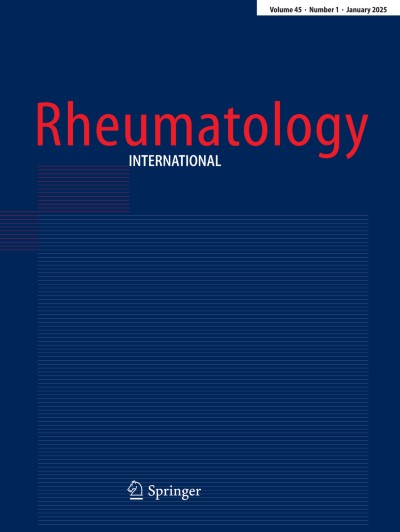Rare Heart Complications Linked to TNF Inhibitors in Young Patients
Table of Contents
A recent case study highlights a potential, albeit rare, link between certain medications used to treat rheumatic diseases and serious heart complications in adolescents. The study details two 15-year-old patients who experienced heart failure after starting treatment with tumor necrosis factor (TNF) inhibitors.
One patient, diagnosed with ankylosing spondylitis, began treatment with adalimumab. The other, diagnosed with juvenile idiopathic arthritis (polyarthritis with a positive rheumatoid factor), started treatment with etanercept. Both developed myocardial inflammation, leading to heart failure shortly after beginning their respective medications. Importantly, their conditions improved considerably after switching to choice treatments: secukinumab and tocilizumab, respectively.
While TNF inhibitors have a long track record of safety and are widely used to manage inflammatory conditions, this study underscores the need for careful monitoring of cardiovascular health in young patients undergoing treatment.The researchers emphasize that even subtle or unusual symptoms suggestive of heart failure should not be dismissed.
“Although cardiovascular adverse effects seem to be very rare in this population, even atypical symptoms of cardiac failure should not be ignored, and cardiac function should be closely monitored when administering anti-TNF-α,” the study concludes.
The study, which represents a thorough literature review, found these to be the only reported cases of heart failure in adolescents with rheumatic diseases following anti-TNF treatment. This rarity highlights the unusual nature of these events, but also underscores the importance of vigilance among healthcare providers.
The findings raise awareness for U.S.physicians and patients about the potential, albeit extremely low, risk of cardiovascular complications associated with these commonly prescribed medications. The study emphasizes the critical role of close monitoring and prompt attention to any concerning symptoms in young patients receiving TNF inhibitor therapy.
This research serves as a reminder that while these medications are generally safe and effective, individual responses can vary. Regular check-ups and open communication between patients and their healthcare providers are crucial for ensuring the safest and most effective treatment plans.
Understanding TNF Inhibitors and Rheumatic diseases
TNF inhibitors are a class of medications used to treat various inflammatory conditions, including rheumatoid arthritis, ankylosing spondylitis, and juvenile idiopathic arthritis. They work by blocking the action of tumor necrosis factor, a protein involved in inflammation. While generally safe and effective, as with all medications, potential side effects exist.
This case study highlights the importance of ongoing research and careful monitoring of patients receiving these medications, especially in vulnerable populations like adolescents.Further research is needed to fully understand the potential mechanisms behind these rare cardiovascular events.
key Takeaways for U.S. Patients and Healthcare Providers
- While rare, heart complications can occur in adolescents treated with TNF inhibitors.
- Close monitoring of cardiovascular health is crucial for young patients on these medications.
- Any unusual symptoms, even seemingly minor ones, should be reported to a healthcare provider immediately.
- Open communication between patients and their doctors is essential for safe and effective treatment.
Rare Heart Risks in Teens: Examining the Link to TNF Inhibitors
This interview explores a recent case study that suggests a potential link between tumor necrosis factor (TNF) inhibitors, commonly used to treat inflammatory conditions like juvenile idiopathic arthritis and ankylosing spondylitis, and rare but serious heart complications in young patients. We’ll be discussing the implications of this research with Dr. sarah Miller, a leading pediatric rheumatologist.
Understanding the Study’s Findings
Senior Editor: Dr. Miller, thank you for joining us today. This recent case study certainly raises some concerns. Can you help us understand the basic findings?
Dr. Sarah Miller: Certainly. This study highlights two adolescents, both 15 years old, who developed heart failure shortly after starting treatment with TNF inhibitors.One was being treated for ankylosing spondylitis with adalimumab, and the other for juvenile idiopathic arthritis with etanercept. Importantly, both patients saw significant advancement after switching to option treatments.
Senior Editor: So,while these are isolated cases,they do suggest a possible connection between TNF inhibitors and heart complications in young patients?
dr.Sarah Miller: It’s important to remember that these are rare events. TNF inhibitors have a long and generally safe track record for treating a wide range of rheumatic diseases. Though, this study does underscore the need for careful monitoring of cardiovascular health, especially in young patients undergoing this type of therapy.
Monitoring and Recognizing Warning signs
Senior Editor: What specific symptoms should parents and healthcare providers be aware of?
Dr. Sarah Miller: Any unusual symptoms suggestive of heart failure should not be dismissed. This could include shortness of breath, fatigue, swelling in the legs or ankles, and rapid or irregular heartbeat.It’s crucial to communicate any concerns with your doctor promptly.
Senior Editor: Should this study cause patients currently receiving TNF inhibitors to be overly worried?
Dr. Sarah Miller: Not necessarily. The risk of these complications appears to be very low. Though, open dialog between patients and their doctors is essential. Discuss any concerns you have, and make sure you understand the potential risks and benefits of your treatment plan.
Moving Forward: Research and Dialogue
Senior Editor: What are the next steps in terms of research and clinical practice?
Dr. Sarah Miller: More research is needed to fully understand the mechanisms behind these rare cardiac events. We need to continue monitoring patients closely and investigating potential risk factors.
open dialogue between healthcare providers and patients is crucial for ensuring the safest and most effective treatment strategies.
Senior Editor: Dr. Miller, thank you so much for shedding light on this important topic and for emphasizing the importance of vigilance and communication in managing these conditions.
